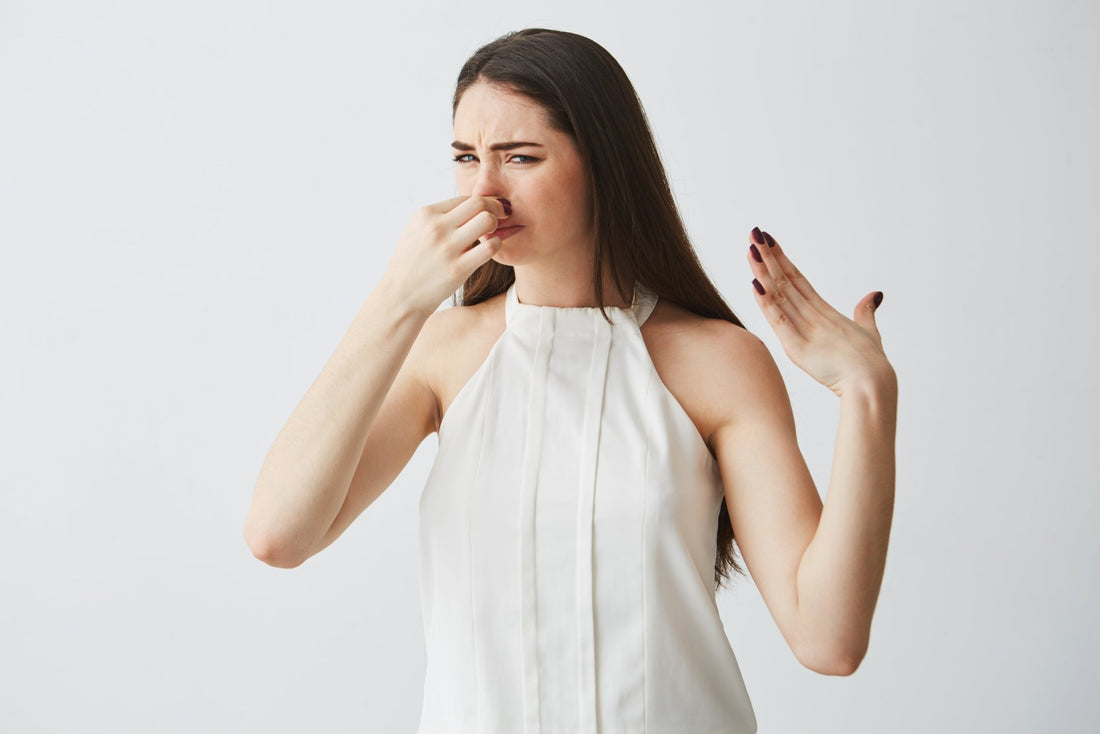Why You May Have Bad Breath Even After Brushing (And What to Do About It)

Why You May Have Bad Breath Even After Brushing (And What to Do About It) - Enzim Singapore
Introduction: Brushing Isn't Always Enough for Optimal Oral Health
Brushing your teeth twice a day is a core part of good oral hygiene. Yet for many, mouth odour persists even after brushing diligently. If you've ever thought, "My breath stinks despite brushing," you're not alone. This frustrating experience is more common than you might think, especially for people with chronic bad breath all the time. Even those who diligently combat morning breath may find themselves struggling with persistent smelly breath throughout the day.
This article uncovers the real causes of bad breath that brushing alone can't fix, and provides a solution backed by science: supporting your mouth's natural ecosystem with enzyme-based oral care to improve overall oral health and combat genuine halitosis. We'll explore various treatments for bad breath and how to address the root causes of fetor oris, the medical term for halitosis, and how people with bad breath can make long-term improvements.
The Hidden Halitosis Causes That Brushing Can't Fix
While brushing removes dental plaque and food particles from tooth surfaces, it doesn't address all the contributors to halitosis. Let's explore some common causes of breath odor that might still affect you even after your morning and evening routine:
1. Tongue Coating
Up to 80–90% of bad breath originates from the tongue. Bacteria accumulate on its rough surface, producing foul-smelling volatile sulfur compounds like hydrogen sulfide and methyl mercaptan. If you're not practicing proper tongue cleaning daily, brushing your teeth alone won't make much difference in combating oral malodour.
2. Gum Pockets and Hard-to-Reach Areas
Brushing doesn't always reach deep gum pockets or interdental spaces where bacteria thrive. If these areas aren't cleaned properly, they become breeding grounds for odor-causing bacteria, potentially leading to gingivitis, tooth decay, or other oral infections. Food impaction in these areas can exacerbate the problem.
3. Dry Mouth (Xerostomia)
If your mouth feels dry even after brushing, your saliva may not be producing enough enzymes to neutralize acids and rinse away bacteria. People with chronic bad breath often experience reduced saliva flow, especially if they breathe through their mouth, take certain medications, or are dehydrated.
4. Diet, Stress, and Systemic Conditions
Certain foods (garlic, onions), alcohol consumption, and smoking leave lasting residues even after brushing. In some cases, persistent halitosis may be linked to systemic diseases like diabetes mellitus, kidney disease, or liver failure—issues that brushing alone won't resolve. Conditions such as GERD (gastroesophageal reflux disease) or heartburn can also contribute to bad breath due to stomach acid reaching the mouth.
5. Chemical-Rich Toothpastes That Disrupt Oral Balance
Most commercial toothpastes use Sodium Lauryl Sulphate (SLS)—a foaming agent that can irritate oral tissues and disrupt saliva function. Ironically, many people who want to cure bad breath may be using products that make it worse over time.
6. Other Medical Conditions
Sometimes, bad breath can be a sign of underlying health issues. Tonsilloliths (tonsil stones), sinus infections, and postnasal drip can all contribute to persistent mouth odor. In rare cases, metabolic conditions like trimethylaminuria or ketoacidosis can cause distinctive breath odors.
Why You Still Have Mouth Odour After Brushing: The Science Behind It
The short answer: brushing alone doesn't support the natural defense mechanisms of your mouth.
Saliva contains enzymes and proteins that help manage bacteria levels and maintain a healthy pH. Traditional toothpastes don't work in harmony with these systems—in fact, they often suppress them with alcohol, peroxide, or SLS. This disruption can lead to an increase in volatile sulfur compounds like dimethyl sulfide, the primary culprits behind smelly breath.
What you really need is a toothpaste that complements your mouth's biology—a product that works with your body, not against it, to prevent bad breath and promote overall oral health. Understanding the role of bacterial putrefaction in producing these odorous compounds is key to addressing the root cause of halitosis.
The Enzyme-Based Solution: Enzim Toothpaste
Here's where Enzim comes in. Unlike harsh chemical alternatives, Enzim toothpaste is designed to fight bad breath at its source by supporting the biological function of saliva and enzymes.
Why It Works:
-
Contains Active Proteins and Enzymes that help reduce the bacteria responsible for breath odor.
-
SLS-Free and Non-Foaming, making it gentler on your mouth and microbiome.
-
Halal-Certified and Food-Grade, safe for daily use by the whole family.
-
Supports Oral Microbiome Health, a key factor in eliminating mouth odour.
By enhancing your natural saliva function instead of overpowering it with artificial mint or foam, Enzim provides a lasting solution for those struggling to get rid of bad breath even after brushing. It's particularly effective for those dealing with genuine halitosis, going beyond the temporary relief offered by breath mints or mouthwashes containing chlorhexidine or cetylpyridinium chloride.
What to Do If You Have Chronic Bad Breath All the Time
If you're someone who has putrid breath all the time, consider making these adjustments to your daily routine:
-
Use an Enzyme-Based Toothpaste
Switch to a non-irritating toothpaste like Enzim, which supports natural oral balance instead of disrupting it. -
Clean Your Tongue Every Day
Use a tongue scraper or soft-bristled brush for effective tongue cleaning to gently remove coating and bacteria. -
Stay Hydrated
Drink water regularly and avoid excessive caffeine, which can dry the mouth. -
Avoid Smoking and Alcohol
These contribute to dry mouth and increase bacterial activity. -
Flossing Daily and Use Interdental Brushes or Water Flossers
Cleaning between teeth with a water flosser removes odor-causing plaque that brushing misses. -
Limit Volatile Foods
If you have meetings or close interactions, reduce consumption of garlic, onions, and spicy food beforehand. -
Use an Antibacterial Mouthwash
Incorporate an antibacterial mouthwash into your routine to help fight bad breath-causing bacteria. -
Address Underlying Issues
Treat any mouth sores, manage postnasal drip, and ensure proper denture hygiene if applicable. -
Consult a Dentist if the Issue Persists
A professional can rule out deeper issues such as gum disease, tonsil stones, or other oral infections. They may perform an organoleptic examination or use gas chromatography to identify specific compounds causing the odor.
Making these simple changes, along with switching your toothpaste, can drastically improve your oral freshness and confidence.
People with Chronic Bad Breath: You're Not Alone
Struggling with persistent breath odor can feel isolating, but it's a condition shared by millions. It's not a matter of poor dental hygiene—it's often a matter of awareness and using the right products. Many individuals suffering from genuine halitosis may not realise that their condition goes beyond simple morning breath or the occasional bout of smelly breath.
If you know someone trying to get rid of halitosis but nothing seems to work, consider introducing them to Enzim. It's not about overpowering your breath with flavour—it's about restoring your natural oral defence system. For those concerned about halitophobia (the fear of having bad breath), addressing the issue with effective solutions can provide peace of mind.
Conclusion: When Brushing Isn't Enough, Go Back to Nature
If you've done everything right—brushed, flossed, rinsed—but still find yourself battling mouth odour, it's time to rethink your approach. Many people with chronic bad breath are unknowingly using products that strip their mouth of natural protection.
Enzim offers a gentler, more effective way to prevent bad breath by working in harmony with your body. So if you're frustrated by putrid breath all the time, know that there is a smarter, safer alternative—and it starts with your toothpaste. By addressing the root causes of oral malodour, including the production of volatile sulfur compounds, you can achieve lasting freshness that goes beyond temporary solutions.
Try Enzim today—your breath (and your oral health) will thank you.
Now available at leading pharmacies and online across Singapore.



